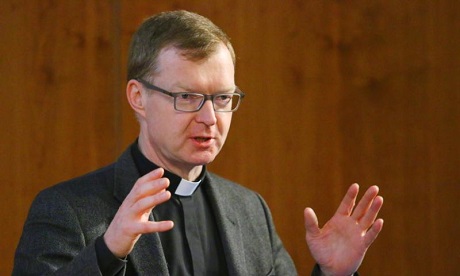Better guidelines are needed to protect the sacrament of reconciliation as a “channel of grace” for sexual abuse victims, says Jesuit Father Hans Zollner.
“If the church did more to help confessors be empathetic listeners as well as skilled interpreters of the church’s moral teaching, it would make it clearer that the sacrament of reconciliation can be an instrument in the fight against abuse.”
It must explain why it does not protect abusers or other serious criminals from justice and why the confessional seal can help safeguard children and vulnerable adults. If not, legislators may target the confessional seal’s inviolability, he said.
Zollner’s article followed an independent commission’s report that estimated over 330,000 children in France were abused by church personnel since the 1950s.
The report provoked the question that had been raised after the publication of similar reports elsewhere: “Should it be mandatory for a priest who hears about sexual abuse committed against a minor in confession to report it to the secular authorities?”
There is no “compelling evidence showing that abuse would be prevented by removing the seal” of the confessional,” Zollner wrote.
The Code of Canon Law forbids a priest from revealing anything he has learned in the confessional for any reason.
While the church’s poor record of preventing abuse and handling allegations has created suspicion about its protection of the secrecy of the confessional, Zollner said that secrecy makes “people feel free to say things in confession they wouldn’t say anywhere else.”
That “safe space” is used much more often by survivors and victims than by abusers.
“With the exception of prison chaplains, priests are highly unlikely to ever hear a confession from a perpetrator of sexual abuse of children.”
Zollner said he’s only ever heard of one priest hearing a confession from an abuser – “and that was on just one occasion,”.
But many victims feel guilty and find it extremely difficult to speak for the first time about the unspeakable, he acknowledged.
If you cannot be absolutely sure that what you say in confession will remain confidential, one of the few safe places where starting to talk about an experience of abuse is possible may be lost, he said.
To assist victims, protect the sacramental seal and promote justice, the Church should issue better guidelines for priests who hear confessions, so they know what to do in abuse or suspected abuse.
It would reiterate obligations to respect the laws for reporting abuse outside of the confessional and reaffirm the seal.
It would also emphasize the confessor’s responsibilities, including “the requirement to call on a perpetrator to stop the abuse, to report themselves to the statutory authorities, and to seek therapeutic help.”
The instruction would make clear that “absolution for the sin of abuse cannot be given unless not only has sincere contrition been shown but the willingness to make up for the harm done has been demonstrated.”
It would also clarify that in the case of a victim speaking about being abused, the confessor must listen with empathy and respect.”
Source
- America Magazine
- Image: America Magazine
Additional reading
News category: World.




